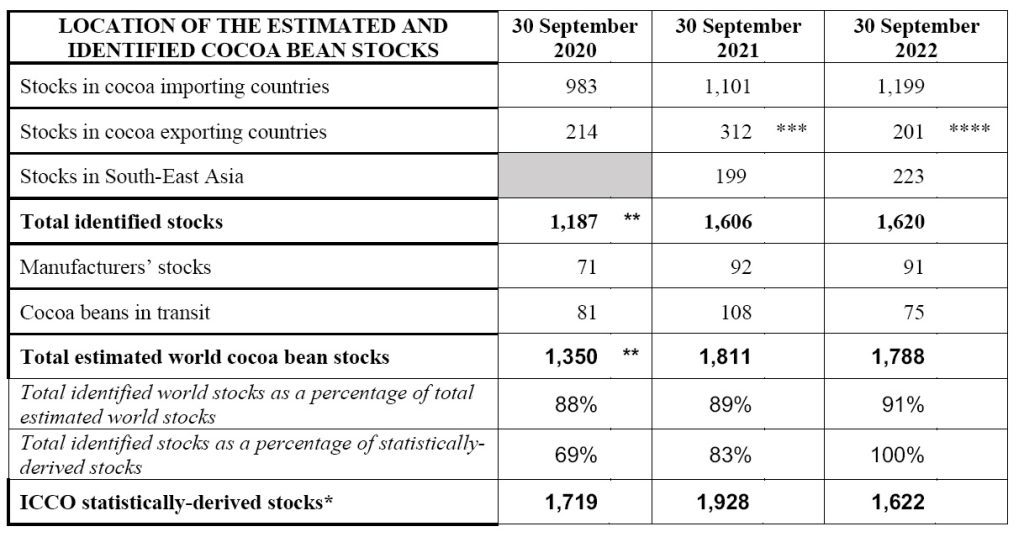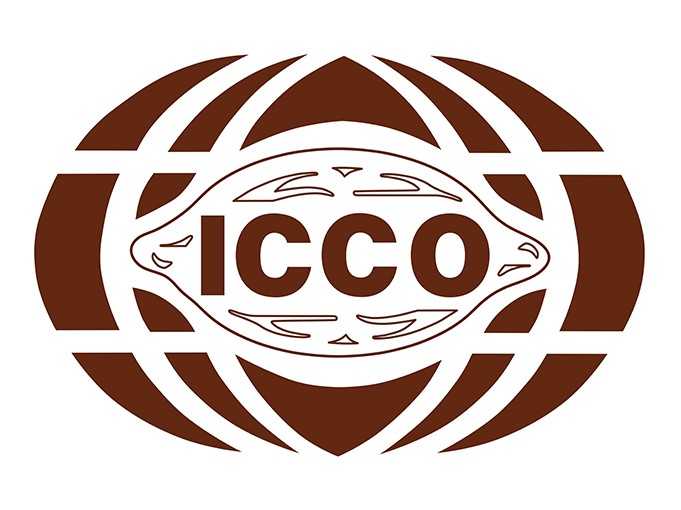ABIDJAN, Côte d’Ivoire – The ICCO Expert Working Group on Stocks (EWGS) met yesterday, Thursday 26 January 2023 to review the level of world cocoa bean stocks. The EWGS is composed of experts in the cocoa field who meet once a year, at the invitation of the ICCO, to review and analyse the results of the ICCO’s annual survey of cocoa bean stocks held in European warehouses as well as assess the level of global cocoa bean stocks.
The survey is conducted every year (since 2000) and aims to improve transparency in the cocoa market.
* Published in the ICCO Quarterly Bulletin of Cocoa Statistics, Volume XLVIII, No. 4, Cocoa Year 2021/22
** Do not include stocks data from South-East Asia
*** Do not include data from Brazil
**** Do not include data from Brazil and Togo
The EWGS notes that the statistically-derived stock is now lower than the estimated world cocoa beans stock identified through the survey.
The EWGS will meet with the ICCO Secretariat to review and if necessary revise the ICCO statistically derived stocks. While the ICCO Secretariat maintains, so far, its supply deficit estimate of 306,000 tonnes for 2021/22 as published in its latest QBCS, it may revise that figure in due course taking into account the outcome of this discussion.
About ICCO
The International Cocoa Organization (ICCO) is an inter-governmental organization established in 1973 under the auspices of the United Nations and operating within the framework of successive International Cocoa Agreements. The ICCO is headquartered in Abidjan, Côte d’Ivoire.
The Organization comprises 52 Member countries, of which 23 are cocoa exporting countries and 29 are cocoa importing countries. These Member countries together represent 95% of world cocoa exports and 80% of world cocoa imports.
The ICCO seeks to promote and support the economic, social, and environmental sustainability of the cocoa value chain, and in particular to improve the living conditions of cocoa farmers.
The Organization acts as a center for knowledge and innovation in the world cocoa economy; as a platform for institutional cooperation to foster dialogue among its Member countries and between key stakeholders in the cocoa value chain; and as a source of technical assistance for its Member countries.


















